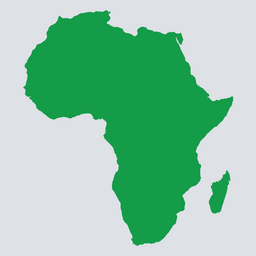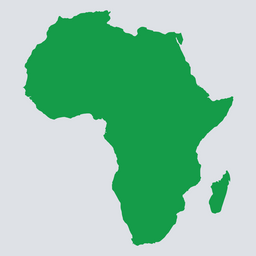OP-ED - Who controls the narrative? First-party data, truth and power in Africa’s digital economy
As powerful actors spin persuasive stories, the challenge is documenting reality with first-party evidence, resisting myths, and shaping narratives that serve more than self-interest.

A crypto entrepreneur posting as @goodalexander on X recently offered some disconcerting observations about powerful people and truth-telling. His cynical take - that Warren Buffett's folksy investment wisdom and Peter Thiel's contrarian innovation insights might be theatrical misdirection - feels particularly relevant when applied to how we discuss Africa's digital transformation.
These musings come alongside @goodalexander's promotion of Post Fiat, a blockchain project that reimagines XRP's consensus mechanism with AI-driven validator selection. Whether his X handle reflects genuine identity or careful branding around "good" intentions, his scepticism about curated reality deserves journalistic scrutiny.
I met with Peter Thiel once
— goodalexander (@goodalexander) August 27, 2025
I pitched him on a system to detect trends
he told me it wasn't interesting because by the time a trend is in place, it means that it's likely overvalued
I thought I learned a lost then he top blasted all his previous investments and turbo printed…
Side-bar: XRP is a cryptocurrency created in 2012 by developers David Schwartz, Jed McCaleb, and Arthur Britto. Unlike Bitcoin, all 100 billion XRP tokens were created upfront, with most going to Ripple Labs—the company that helped develop it. XRP runs on its own blockchain designed for fast, cheap international payments, though Ripple doesn't actually own the network.
Empire fragments
There's something almost poetic about someone called Alexander critiquing the machinery of influence. The original Alexander (the Great) succeeded miserably at conquering the world, dying young after swiftly taking over vast territories that immediately fragmented. Perhaps our modern Alexander's insights about fabricated methodologies and post-truth economics carry similar warnings about the sustainability of narratives built on strategic misdirection.
This scepticism is a handy tool for weighing how we discuss Africa's digital transformation. We celebrate mobile money penetration statistics while sidestepping questions about whose systems actually power this "leapfrogging." We herald blockchain fixes for financial inclusion while rarely examining whether these primarily extract value to foreign tech conglomerates.
Payment rails
Take Zimbabwe's EcoCash, operated by Econet Wireless. The platform's partnerships reveal the intricate web of global alliances that define modern African fintech. EcoCash Diaspora, a nifty product innovation that my family recently found handy for channelling financial lovegifts to my mother from all over the world following my father's death, facilitates remittances from Zimbabweans abroad through partnerships with MoneyGram, M-Pesa, MTN, Shoprite, Western Union, WorldRemit and other international money transfer agencies.

MasterCard's involvement runs deeper than simple processing. The company has reportedly issued over 3 million MasterCard debit cards linked to EcoCash accounts, creating Zimbabwe's largest EMV chip and PIN card rollout and allowing customers to withdraw money from MasterCard-licensed ATMs whilst paying for goods locally and internationally.
The same underlying infrastructure also supports newer market entrants like InDrive. The Russian ride-hailing platform, which operates on a haggling model where passengers name their price, accepts EcoCash and MasterCard payments for wallet top-ups.
Even though the extent of MasterCard's direct role in facilitating InDrive's aggressive Zimbabwe expansion lacks detailed public documentation, the payment options clearly build on the existing EcoCash-MasterCard ecosystem that has already reduced barriers for international platforms seeking local market access.
Curated realities
The arrangement illustrates @goodalexander's point about curated realities. From one angle, it's a success story about African fintech systems driving financial inclusion. MasterCard's 3 million debit cards represent the largest such rollout in Zimbabwe's history, while EcoCash Diaspora processes an increasingly significant portion of total remittances into the country. From another, it demonstrates how global payment networks create pathways for foreign platform market penetration, with transaction fees and data flowing through multiple international intermediaries.
EcoCash benefits from increased transaction volume, MasterCard collects processing fees, InDrive gains market access, and Zimbabwean consumers get cheaper rides, but the value capture primarily accrues outside the local economy.
This success story operates within the same structural constraints that necessitated its existence: currency volatility, limited formal banking penetration, and regulatory uncertainty that can see mobile money agents nabbed for facilitating transactions in ways that suddenly fall afoul of fiscal or monetary policy oversight.
Similar complexities emerge when examining Chinese involvement in African technology systems. Cameroon's CamTel partnership with Huawei to expand 4G coverage across the country genuinely improved telecommunications access in underserved regions, connecting rural communities to digital services for the first time. Simultaneously, it embedded Chinese technology standards and created dependencies on Huawei's technical expertise and equipment supply chains.
Steel cuts
The uncomfortable truth is that both narratives can be simultaneously accurate.
Zimbabwe's Manhize steel plant, a joint venture between Chinese firm Tsingshan and local partners, now produces steel that competes directly with South African manufacturers in regional markets. ArcelorMittal South Africa and other domestic producers have raised concerns about low-priced Zimbabwean steel imports undermining their pricing structures and threatening local employment.
Zimbabwe's steel industry revival, financed by Chinese capital and technology, potentially destabilises South Africa's manufacturing base, even as Beijing emerges as the primary beneficiary of both countries' steel consumption patterns.
These dualities extend beyond individual projects to systemic questions about agency and self-determination.
When Lagos-based fintech companies integrate with international payment processors to serve African diaspora communities, they're solving real problems while also channelling transaction fees to foreign financial infrastructure. When Sub-Saharan African AI researchers collaborate with European or North American institutions on “AI for good” projects, they're building local capacity while potentially training algorithms that offshore critical IP and analytical potential which primarily serve Global North applications.
Narrative honesty
Iginio Gagliardone, professor of media studies at Wits University and inaugural SARChI SA-UK Bilateral Chair in Digital Humanities, speaks of using technology to "reimagine more humane ways of interfacing with digital development," pointing toward something crucial: the need to centre historically marginalised forms of knowledge rather than simply adopting external approaches wholesale.
Yet here's where @goodalexander's cynicism about fabricated methodologies becomes most relevant. If powerful actors routinely say whatever serves their immediate objectives - whether that's attracting investment capital or maintaining market position - how do we distinguish between genuine transformation and sophisticated marketing?

First-party data
@goodalexander's observation about the "only data worth anything" being first-party study and collection becomes essential here. We cannot afford to rely on others' curated interpretations of our own transformation. When I reflect on CamTel's relationship with Huawei or analyse Zimbabwe's retail sector dynamics, the goal is to place progress within the full complexity of what's actually happening.
The question becomes whether we're telling complete stories that serve the next generation's ability to make genuinely informed choices about their digital futures.
The Venn diagram intersection where digital economy meets real economy exists precisely in this space of complexity. Digital banking thrives in markets where traditional banking failed, operating within the same structural constraints that caused that failure. AI-powered systems promise efficiency gains whilst raising questions about whose intelligence is being optimised and toward what ends.
Perhaps the most honest approach acknowledges that transformation narratives inevitably serve multiple audiences with different objectives. The challenge for those of us documenting these changes is to be transparent about whose interests our framing serves whilst resisting the temptation to oversimplify for the sake of compelling stories.
Counter-algorithm
If @goodalexander - whoever stands behind that handle - is correct about powerful people's dubious relationship with truth-telling, then our responsibility as journalists, or indeed quasi-journalists, becomes critical. Someone needs to document what's actually happening, rather than what various interested parties want us to believe is happening.
The algorithms of influence operate through narrative as much as code. Our counter-algorithm might simply be: radical honesty about complexity, even when complexity is less marketable than tantalising transformation myths.
Editorial Note: A version of this opinion editorial was first published by Business Report on 2 September 2025.



